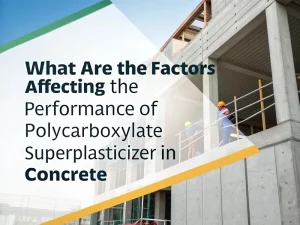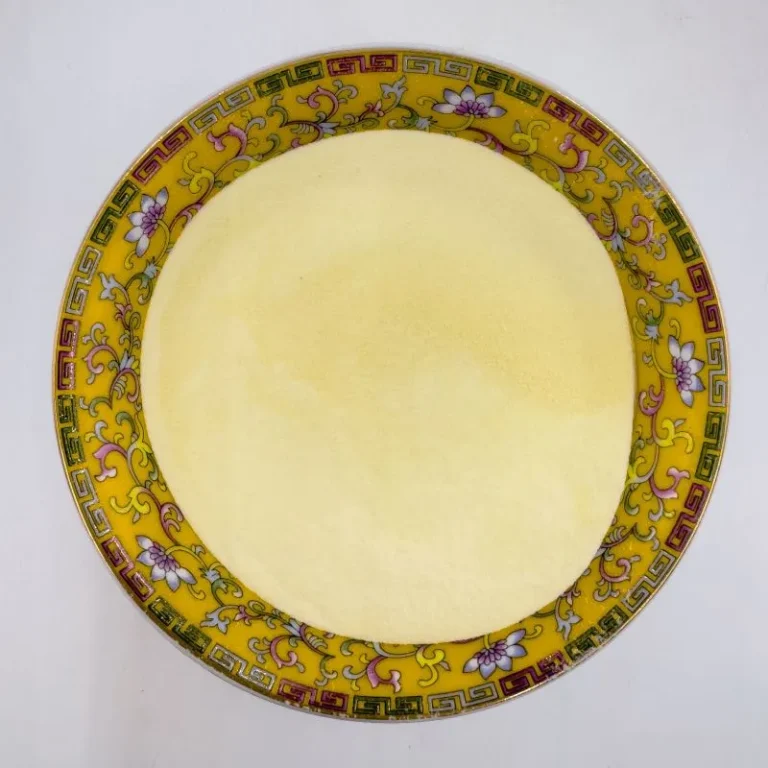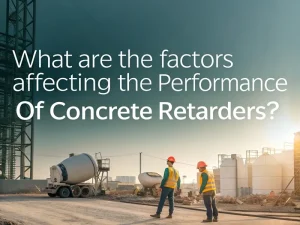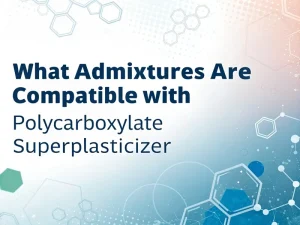
What are the factors affecting the performance of polycarboxylate superplasticizer in concrete?
Blog what are the factors
Blog

In the world of high-performance concrete, not all admixtures are the same. When projects require extreme strength, excellent fluidity, and unparalleled durability, industry experts unanimously turn to the pinnacle of third-generation water-reducing agent technology – Polycarboxylate Superplasticizer (PCE).
However, in the PCE category, there is still a significant difference in quality. Choosing a high-quality polycarboxylate superplasticizer is the key to ensuring project success and avoiding costly failures.
This guide will delve into the core indicators that define high-quality PCE, its application areas, and everything you need to know when choosing a supplier.
Polycarboxylate superplasticizer is a high range water reducer (HRWR) that represents a revolutionary advancement in the field of concrete chemistry. Compared with its predecessors, such as naphthalene-based or melamine-based water reducers, PCE has achieved a qualitative leap in performance.
This superiority stems from its unique “comb-like” molecular structure:
This structure is like installing countless miniature ‘springs’ around each cement particle, effectively pushing them apart from each other. This is much more efficient and long-lasting than the electrostatic repulsion that the old technology relies mainly on.
The primary function of polycarboxylate ether superplasticizer is to disperse cement particles in concrete mixtures. In ordinary concrete mixtures, cement particles often agglomerate due to electrostatic forces. When high-quality polycarboxylate ether superplasticizer is added, its molecules will adsorb onto the surface of cement particles. The negatively charged groups on the superplasticizer molecules generate electrostatic repulsion between cement particles, causing them to be evenly distributed in the mixture. This dispersion not only improves the workability of concrete but also ensures more effective utilization of water in the mix, thereby reducing the overall water-cement ratio.
Whether a product is of “high quality” is not solely based on marketing slogans. It must be demonstrated through a series of quantifiable performance indicators. When evaluating PCE, please pay attention to the following seven key characteristics:
This is the most core indicator. High quality PCE should be able to achieve a water reduction rate of 25% to 40% or more. This means that while achieving the same fluidity (slump), the amount of mixing water can be significantly reduced. A lower water-cement ratio directly translates into a denser concrete structure and higher strength.
It takes time to transport concrete from the mixing plant to the construction site. Low quality water reducers may have sound initial effects. Still, they will quickly become ineffective, causing the concrete to become dry and hard by the time it is transported to the site. High quality PCE, through its molecular structure design, can achieve controllable slow-release effects, ensuring that concrete maintains its fluidity for up to 60-90 minutes or even longer.
High quality means’ twice the result with half the effort ‘. Top-tier PCE products typically achieve ideal results at lower dosages (e.g., 0.2% -0.8% by weight of cementitious material). This can not only reduce costs but also minimize the negative impact of excessive chemical addition on the final performance of concrete.
By achieving extremely high water reduction rates, high-quality PCE is the cornerstone of manufacturing high-strength concrete (HSC) and ultra-high performance concrete (UHPC). It can significantly improve the early and later strength of concrete, making it easy to reach strength grades above C60, C80, and even C100.
Top PCE manufacturers can customize their products by adjusting their molecular structure, such as main chain length, side chain density, and length. This means they can provide:
This customization capability is an essential indicator of distinguishing between “commodity grade” and “high-quality” PCE.
High quality PCE has good compatibility and stable performance with cement and mineral additives (such as fly ash and slag) from different sources. It should not cause abnormal condensation or bleeding.
High quality PCE products should have extremely low chloride ion content (usually<0.01%) and low alkali content. This is crucial for preventing steel corrosion and avoiding harmful alkali aggregate reactions (AAR), and is a fundamental requirement for ensuring the long-term durability of the structure.
Its outstanding performance makes high-quality PCE the preferred choice in the following fields:
High quality polycarboxylate superplasticizer (PCE) is not just a chemical additive, it is an empowering technology. It gives engineers and architects unprecedented freedom to design and construct stronger, more durable, and more creative concrete structures.
We are China supplier about high quality polycarboxylate superplasticizers. If you need anything, please get in touch with us!

What are the factors affecting the performance of polycarboxylate superplasticizer in concrete?
Blog what are the factors

What are the factors affecting the performance of concrete retarders?
Blog What are the factors

What admixtures are compatible with polycarboxylate superplasticizer?
Blog What admixtures are